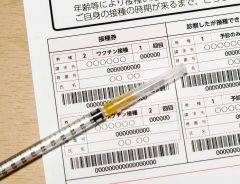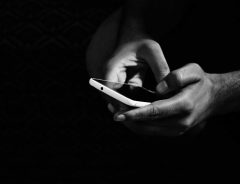
Source: © pxhere.com
As hard times continue during the pandemic, mindfulness products may help provide relief
- Tags:
- App / Awarefy / mindfulness / novel coronavirus / Stress Relief
Related Article
-

Here are some of the Japanese businesses offering discounts to fully vaccinated customers
-

Japanese Trend of Smoothing Foil Balls Into Perfect Spheres Is Beautifully Satisfying
-

How a 19-year-old Haiku poet is turning Japanese politics upside-down
-

16-year-old Develops Contact Tracing App as Japan Reopens Its Economy
-

Cat Collector! Love Cats? Assemble A Household Of Adorable Kitties With This Cute Japanese Smart Phone App!
-

Inner Calm in a Teacup: CHA-Link Meditation and Tea with Miss Tea Ambassador Rica Takeuchi


According to a survey released by the OECD, the Organization for Economic Co-operation and Development, in May this year the proportion of people with depression has more than doubled in Japan. The same trend is evident elsewhere across the developed world, and in the United States, it even seems to be accelerating.
Unsurprisingly, this troubling trend has coincided with the spread of COVID-19. Indeed, COVID-19 is having an adverse effect on people's minds, and some are using the phrase "COVID-19 depression" to describe this gloomy state of affairs.
Psychiatrist Yasuto Kunii, associate professor at Tohoku University, noted, "People who endured mental health problems during normal times may have been pushed to the breaking point during the pandemic. This includes inflicting harm. Furthermore, many people suffering haven't been identified, so the number is likely greater than we know."
In response to the bad news, the Japanese Society of Psychiatry and Neurology and other organizations have published mental health guidelines. Framing the pandemic as a "disaster," the guidelines call for increased support of infected individuals and those enduring hardship.
Awarefy
Hakali Co., Ltd., creators of the Awarefy app, also believes that "maintaining mental well-being is a health issue that will become more and more important to society in the future." The company introduced its Awarefy app in May 2020. The AI-powered app helps users feeling down discover coping mechanisms by interacting with a chatbot. The app is meant to help those who may be too busy or afraid to seek help on their own.
The app encompasses several other mindfulness functions. It can help users by:
Overall, Awarefy seems to be providing some relief. Since its release, it has been used by more than 80,000 users. Interested readers can find more information available at Hakali’s website.
Using a train to relax
Another, perhaps unexpected, approach has also seen some traction of late. A popular relaxation audio series, Croix Healing, recently released their newest sleeping rain album. The electronic album incorporates a relaxing ambiance with gentle music and mimics a comfortable train ride.
You can listen for yourself here and find more information on the product here. Sure enough, the album may be a beneficial alternative to consumers who feel uncomfortable opening up to a chatbot.
Dr. Kouji Bando, a doctor of medicine associated with the project, noted:
“The subconscious mind is vast, and usually something we cannot recognize or tap into. In it, lies the various memories we experienced as a child.”
He continued:
“The sounds in this album stimulate your unconscious while helping you to relax.”
Sure enough, stress and depression were a part of modern-day life long before the pandemic began. As such, it's hardly surprising to see products and services underlining the importance of self-care and mindfulness. Hopefully, consumers feeling the pressure can find a combination of healthy habits to help them weather difficult times.